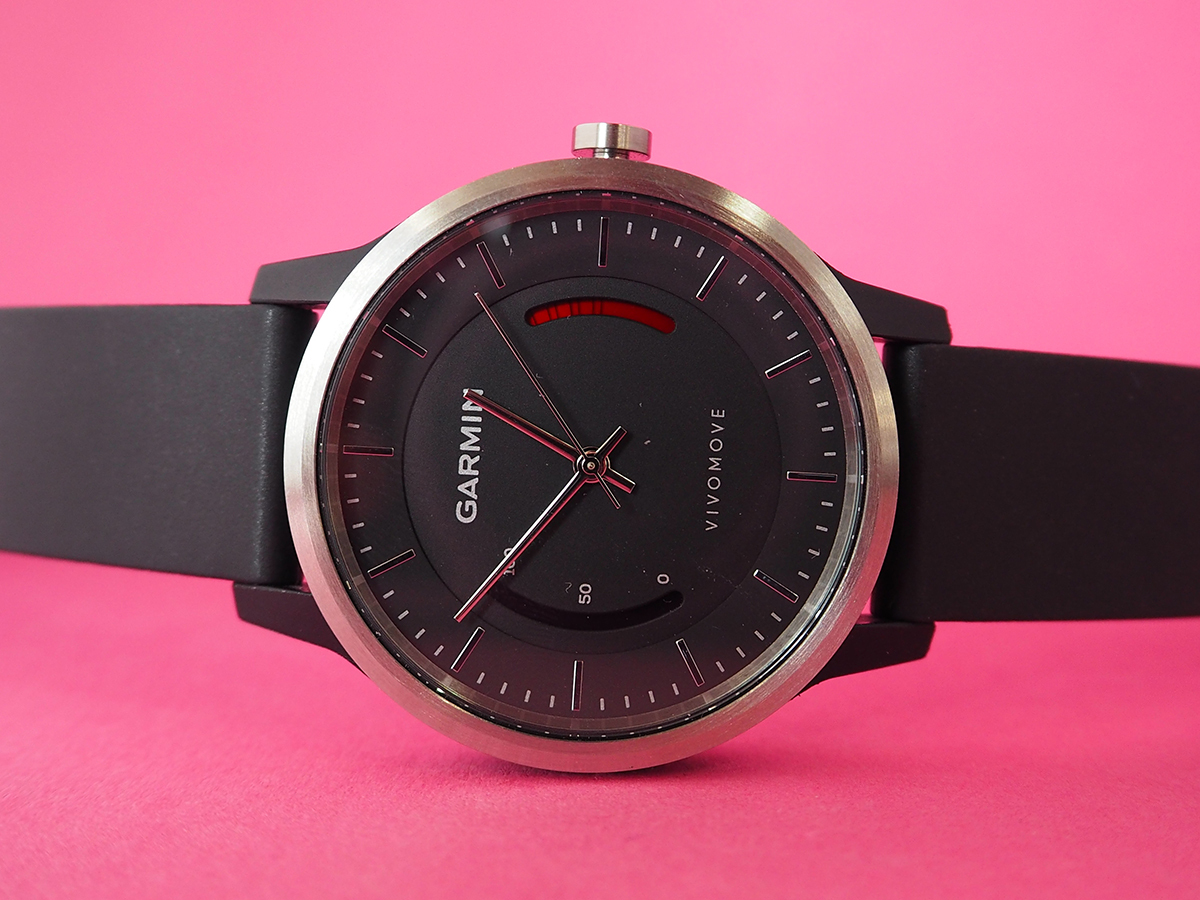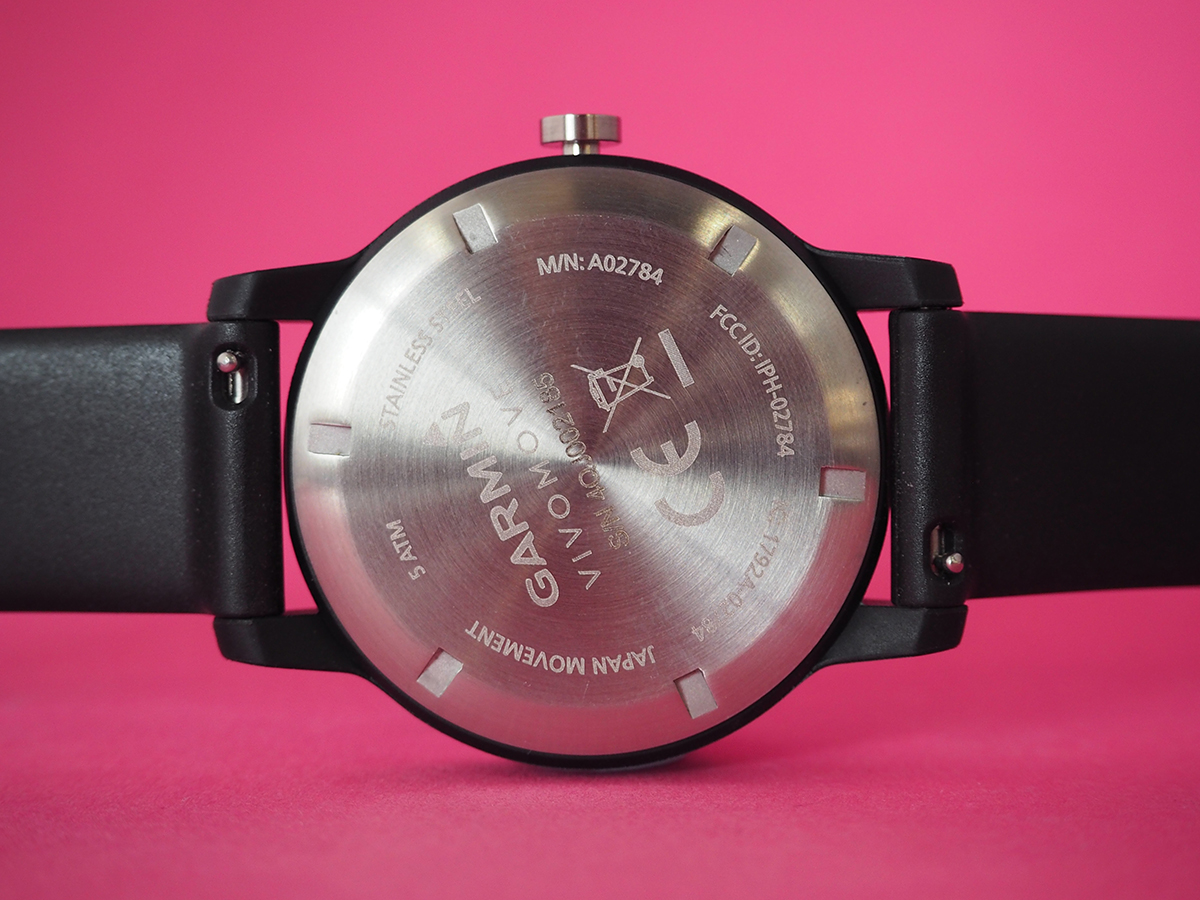Garmin Vivomove review
A case of style before substance - for better and worse
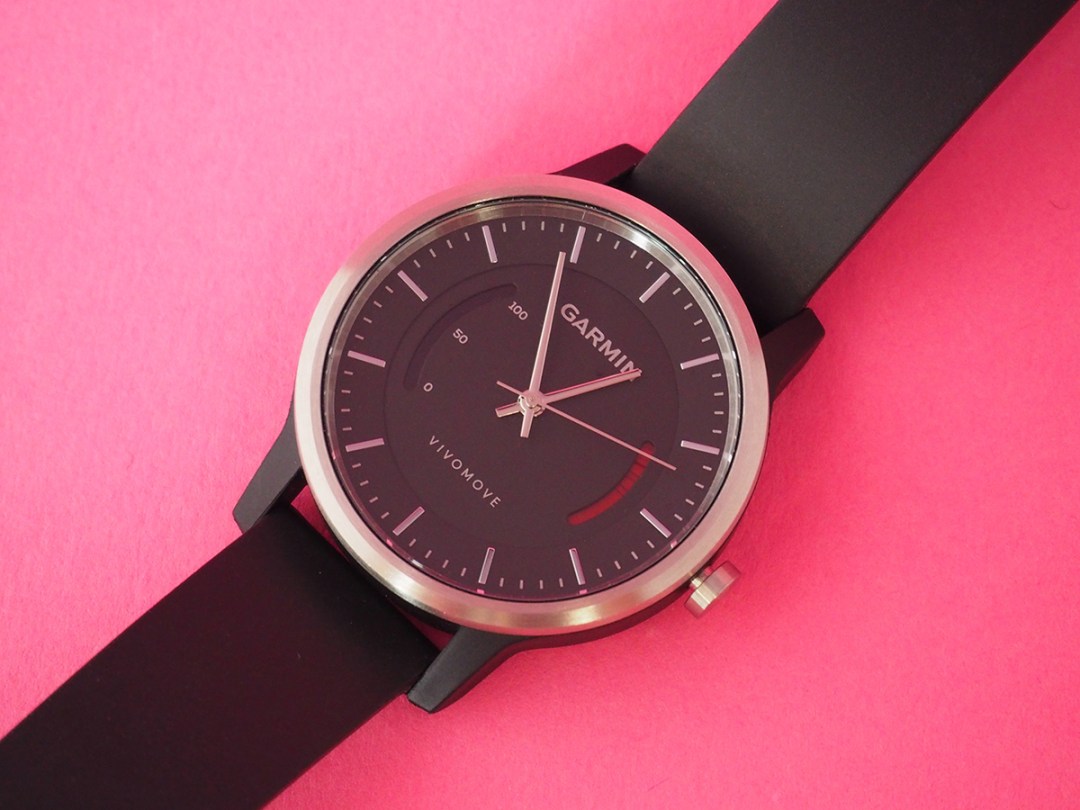
Some things are just better in analogue.
Vinyl has a warmth that you’ll never get from an MP3. A V6 engine stirs up something primal inside that the whir of an electric engine could never match, and a watch with ticking hands sits comfortably on your wrist in a way a digital one never could.
That’s what makes Garmin’s Vivomove fitness watch stand out from the crowd of OLED and LCD imposters. There’s no digital display, no touch-sensitive buttons – just a familiar analogue watch face that’ll keep ticking all day.
Look a bit closer, though, and you’ll spot the subtle activity dials that give away how much tech this simple-looking timepiece is packing.
All about style
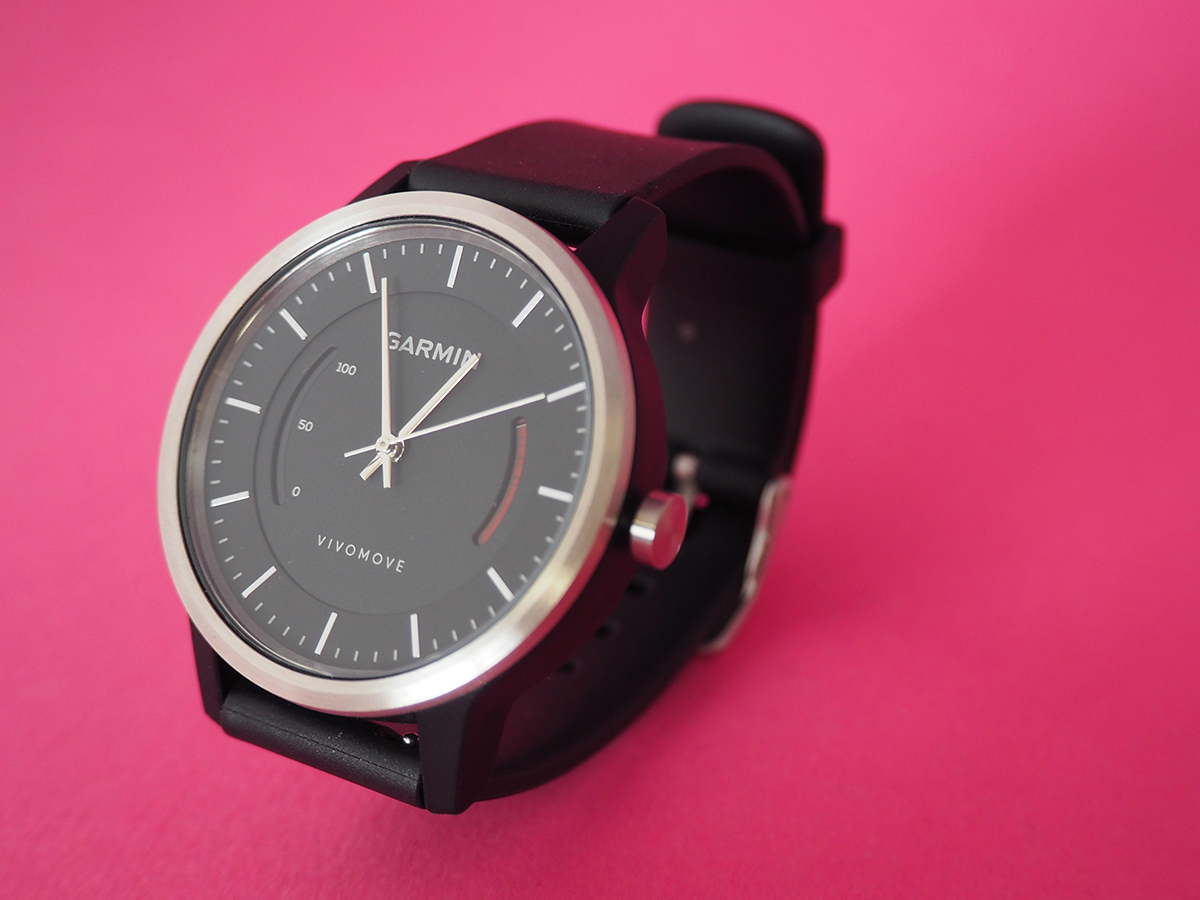
The Vivomove isn’t going to show your exact step count at the flick of a wrist – but it is going to look sharp when you’re leading that boardroom presentation or meeting a client. There’s no chunky band or oversized watch face that screams "I mainly consist on protein powders". Instead, you get a stylish and inconspicuous design.
The basic version might make do with a rubberised plastic strap and a metal-effect bezel rather than the real thing, but it still looks pretty sharp. The rubber won’t sweat it if you go for a swim, either; the whole thing is water-resistant down to 50m.
It’s available in black and white colours, but we definitely prefer the black. Black goes with everything, right? You can also get more expensive models that swap plastic for real leather, and upgrade the bezel to stainless steel. That earns it even more style points from us.
Whichever model you go for, it’s lighter than your average smartwatch, and fits snugly on your wrist. The bezel is a little on the large side, especially if you’ve got dainty wrists, but sits flush enough to slip under a shirt cuff. The crown is a nice touch too, continuing the classic look.
RELATED › 6 ways to supercharge your tracking
Strap me down
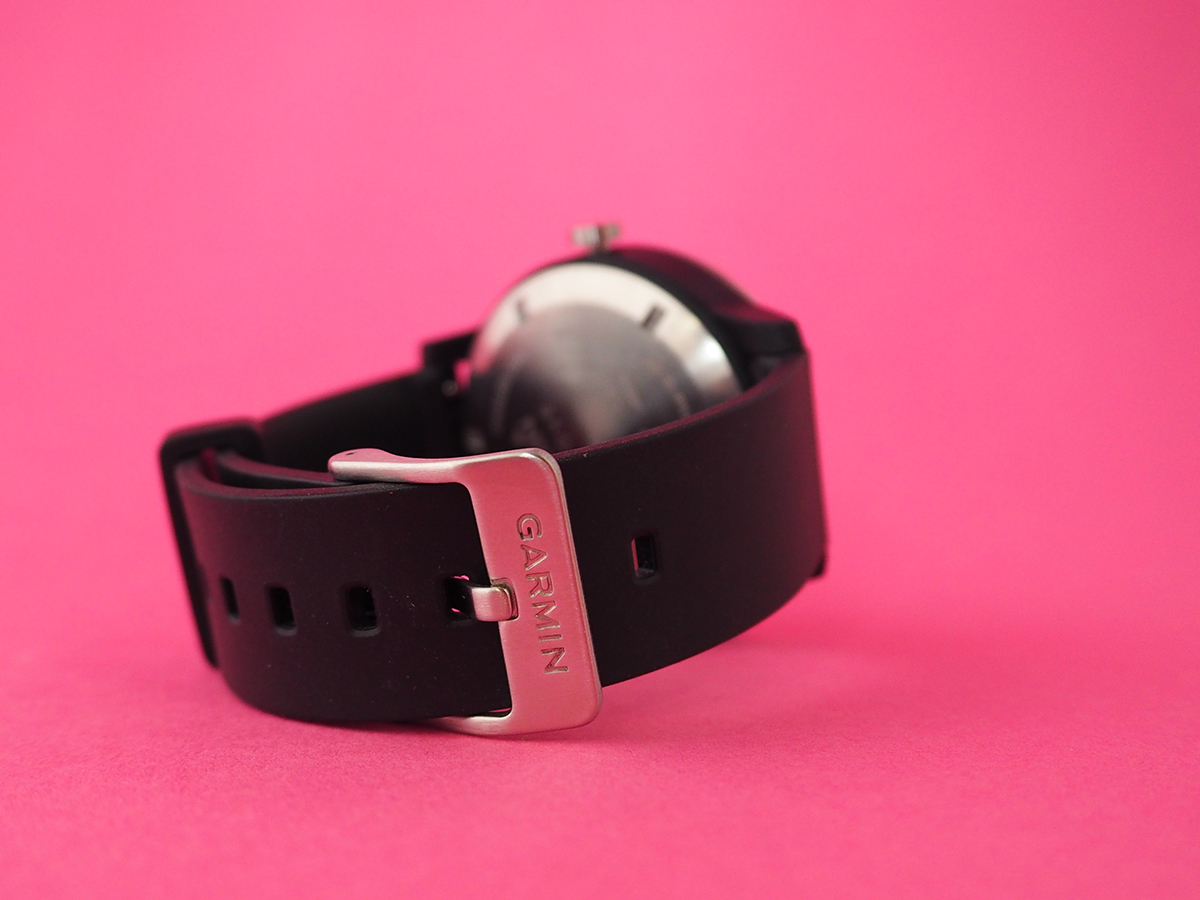
You don’t have to stick with the default look, either. Garmin’s fitted quick-release mechanisms to the straps, and the watch will take any 20mm band. That’s a lot better than the proprietary lugs on Samsung’s Gear S2, let alone the non-replaceable bands from TomTom and FitBit.
All of which means that while Garmin’s selling extra straps of its own (naturally), there’s nothing stopping you further upping the style quotient by putting on a metal band rather than plastic or leather.
If you do stick with the standard strap, you’ll be pleased to hear that it has a traditional clasp, so you can get it on and off in seconds. That instantly gives it a leg up over fussy fitness bands, and even more expensive smartwatches such as the Apple Watch Sport.
You won’t need to take it off very often, though, anyway: the watch cell battery inside is good for up to a year of power. So that’s one less thing you’ll need to remember to charge every night.
RELATED › The best health and fitness apps
Watch your step
Garmin’s more serious fitness trackers and exercise watches are definitely a case of function before form, but the opposite is true here. The Vivomove is a great-looking watch that doesn’t try to squeeze in extra features that most us simply won’t use.
So you won’t find a heart-rate sensor on the underside. And it won’t buzz every time you get a Facebook like. It’s all refreshingly simple; just an accelerometer inside for counting steps and sleep, plus two dials behind the watch hands that give a rough idea of how far you’ve walked each day and how long since you last moved about.
The bar on the left ticks up in increrments as your step count increases. The one on the right slowly fills up with red based on how long you’ve been in one place. Couch potato? Prepare to see a lot of red. Walking to and from the fridge isn’t going to cut it, either; you’ll need to walk about 100-200m to completely empty the bar.
Out of the box, Garmin’s step-counting algorithm gave a higher number than the competition, sometimes by as much as 300 steps. Fortunately, setting a custom stride length in the companion app brought things down to a more realistic number. Maybe I just have really long strides.
RELATED › The best sports headphones
App to it
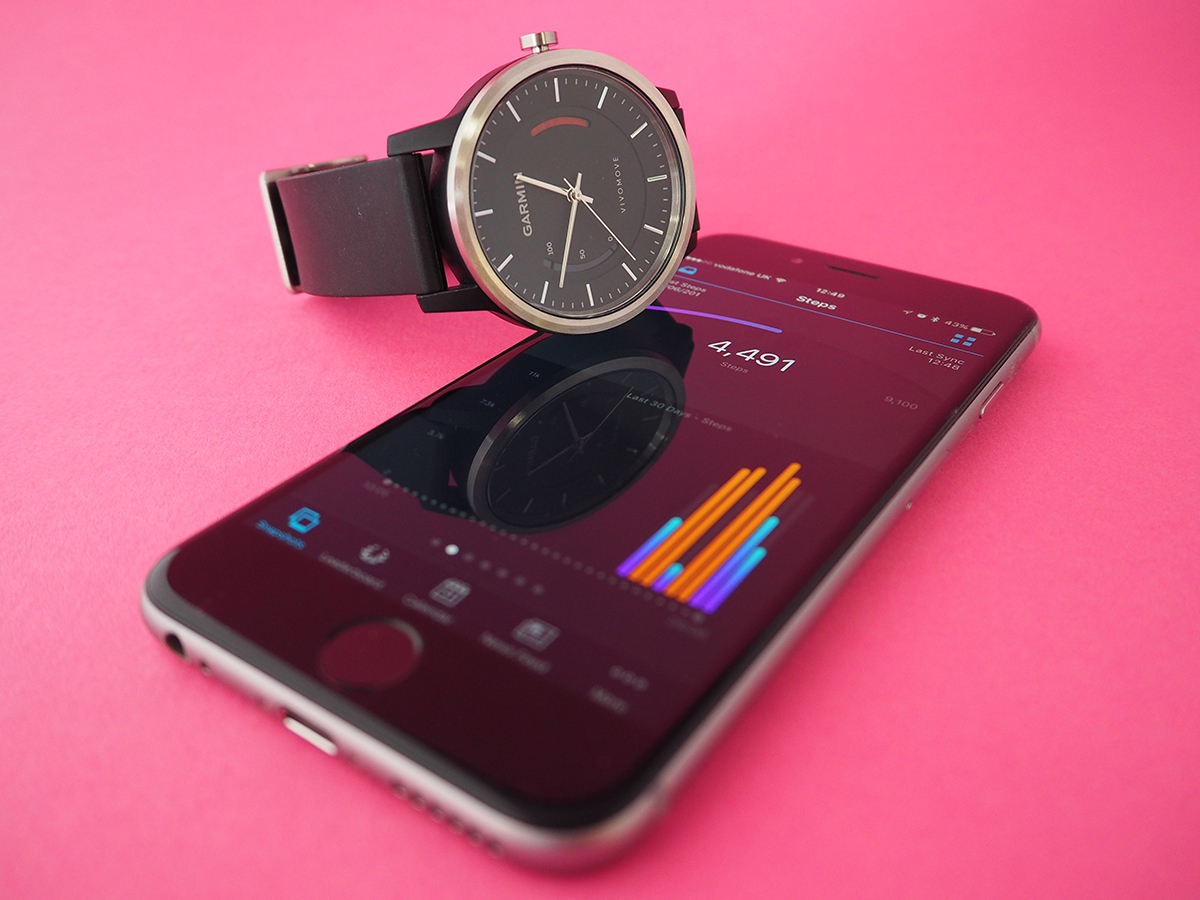
Useful though the dials are for a quick glance at how you’re doing, you’ll have to head into Garmin’s Connect app to see exactly how many steps you’ve walked, and roughly how many calories they’ve burned off.
The good news is that the app is pretty comprehensive, building a profile based on your body metrics and tying in with other big-name apps such as Strava and MyFitnessPal. Everything syncs between services automatically, which saves a lot of hassle, and you can upload to Facebook or Twitter if you want to be smug about how far you’ve walked that week.
There’s no gamification, which some people love, but we’re not too fussed about missing out on virtual badges for hitting our step goals.
It’s also here where you can see your sleep breakdown, but like a lot of sleep-tracking bands and apps, it doesn’t exactly give you any insight into how to get a better night’s sleep – just the reassurance that no, you didn’t sleep very well last night.
Dig deeper into the app, though, and you’ll soon see where the Vivomove is missing more fitness-focused features. It doesn’t detect exercise automatically, so you’ll have to tap in runs manually. There’s no heart-rate tracking and no GPS, either. The idea is that fitness fantatics will wear the Vivomove during the day, but switch over to a Forerunner or Fenix for serious workouts.
That would be fine, but you have to manually switch between devices in the app for it to properly pick up your movements. Forget and it’s like you did all those burpees for nothing.
Garmin Vivomove verdict
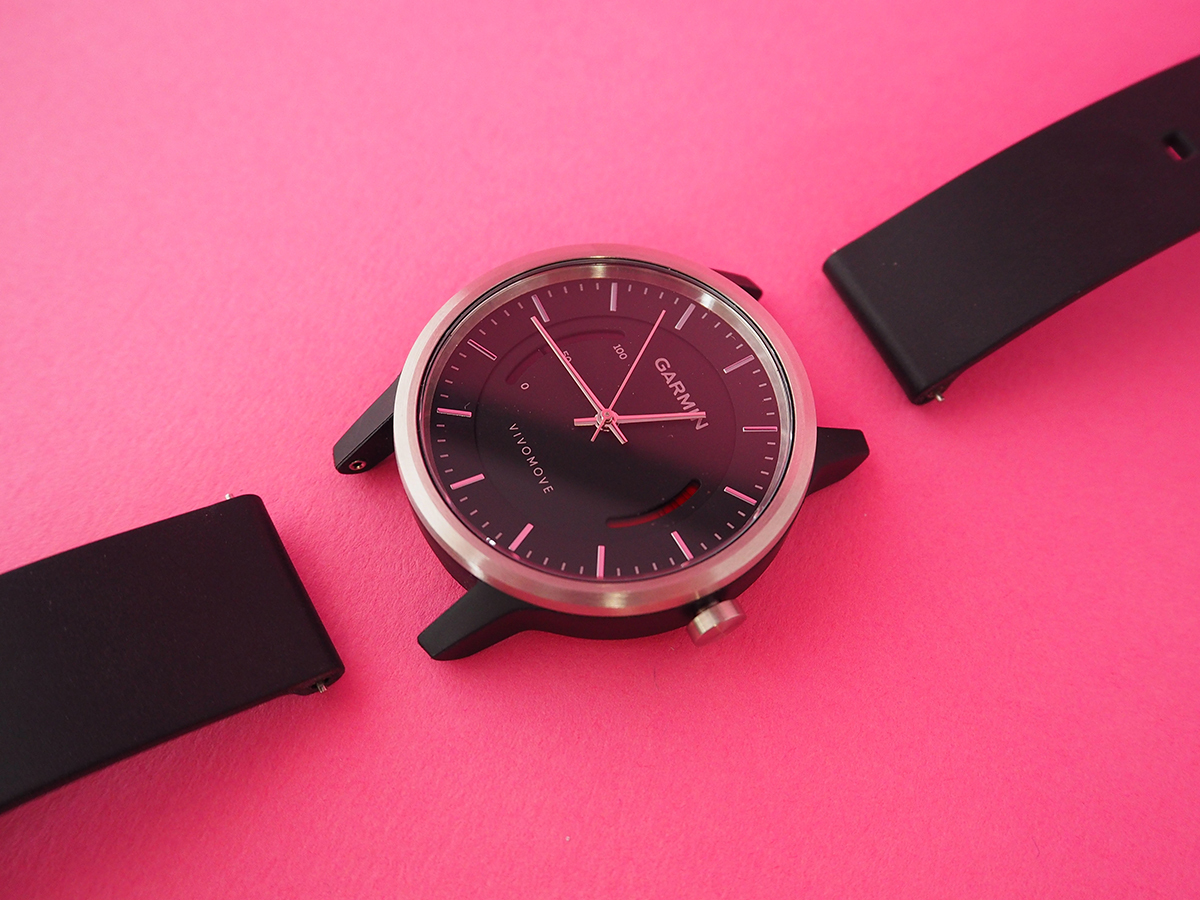
The Vivomove has one big rival in the stylish fitness watch stakes: Withings’ Activité Pop. The Withings has a few extra features, such as a silent vibration alarm, automatic sport detection for running and cycling, and automatic time sync with your phone over Bluetooth.
You might have to set the time manually on the Garmin, but it has the inactivity bar, a longer battery life, and we think it’s got the edge in terms of looks. The Activite is just a bit too plain for us, but the Vivomove manages to stand out without becoming too fitness-focused. If you want to get some serious exercise, Garmin also has the wider range of gear (and a more in-depth app), so we think it has the edge.
Whether it’s right for you at all depends on whether you spend more time at the gym than at home, or if you’re just after a small nudge to get a bit more active.
Serious athlete? This is your daytime watch, one you swap out for a serious tracker when it’s time to hit the track. Commuter with style – and a sturdy pair of walking boots? Free up a space on your wrist: this is everything you need from a fitness watch.
RELATED › Garmin Activité Pop review
Tech specs
| Weight | 51g |
| Dimensions | 42mm diameter x 12mm thick (20mm watch bands) |
| Battery | 1x CR2025 |
Stuff Says…
The Garmin Vivomove lacks the smarts to satisfy fitness freaks, but it sure looks pretty
Good Stuff
Subtle and stylish looks
No information overload
Brilliant battery
Bad Stuff
Too simple for serious sports-fiends
Missing a few features
